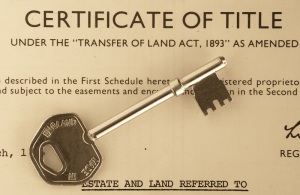Real Estate, Purchase Agreement, and Landlord Tenant Lawyers
Real Estate transactions are much more complicated than many people realize. There are many things that are required by the State of Michigan that most buyers or sellers are not aware of. There are documents to be prepared, disclosures to be made and terms to be negotiated. If you do not know the law, you can make mistakes which will come back to haunt you.
That’s where our lawyers come in.
When drafting a purchase agreement, or a land contract for buying or selling a home, or making any changes to a deed, you should always have a real estate lawyer present. We also help landlords and tenants resolve any real estate issue that arises over the course of a lease.

We have been facilitating real estate transactions for 30 years and will be more than happy to assist you with your transaction.
Call our real estate attorneys to help you today! (313)-532-2100.
Purchase Agreements & Real Estate Transactions Lawyers
Why do I need an Attorney for a Real Estate Transaction?
Buying or selling a house is a significant legal transaction involving a lot of money. There are many decisions to be made, documents to be prepared and laws to be complied with.
You need a lawyer who is well versed in real estate laws to represent your interests. A real estate agent doesn’t care whether you are making a good deal; he just wants you to buy or sell a house so he can get his commission. That’s how he gets paid. Your attorney will make sure you should buy or sell that house and that you are not being taken advantage of.
When should I get a Real Estate Lawyer?
If you are selling your house on your own, it is a good idea to have a real estate lawyer from the very beginning. He can advise you on setting the price for your home, how to qualify your prospective buyers, what disclosures you have to make, and what documents have to be prepared and signed.
I have a buyer for the property, do I still need a Real Estate Lawyer?
Once you have a buyer, your lawyer prepares the Purchase Agreement and all of the other documents you need, works with the title company on the closing documents and attends the closing with you to make sure everything goes according to plan.
The cost for this is considerably less than the commission usually paid to a real estate company and you have the peace of mind of knowing that your lawyer is taking care of all the details and making sure you have complied with the real estate statutes.
I am buying a house, do I need a Real Estate Attorney?
If you are buying a house, you should see an attorney before you sign anything, including the Purchase Agreement. A Purchase Agreement is a contract. Once you sign the Purchase Agreement, you are stuck with its terms unless you can convince the seller to agree to change them.
If you change your mind about purchasing the house, at the very least, you can lose your deposit, and you could be forced to go through with the purchase if the seller decides to sue you to enforce the contract. An attorney will look the Purchase Agreement over to make sure that it is fair to you, and can recommend any changes he thinks would be in your best interests before you sign it.
I thought a purchase agreement is merely a standard form that everybody just signs and no one really looks at.
Absolutely not! There are many provisions in a Purchase Agreement that can favor either the Buyer, or the Seller. You want those provisions to favor you. You also want to add provisions to cover things that are important to you.
- Were you counting on the appliances staying with the house?
- Were you planning on taking your grandmother’s chandelier with you?
- There are a lot of blanks to fill in when drafting a purchase agreement.
It had better be in the purchase agreement.
That needs to be in there as well. Otherwise, you sold it when you sold the house.
Our Real Estate Lawyer fills in those blanks with terms that benefit you.
What if I didn’t get a real estate lawyer at the beginning?
Better late than never. Bring in your paperwork and we’ll find out where you stand and whether you have or need any room to maneuver. We’ll see you through the rest of the real estate transaction and help you anywhere we can.
Landlord/Tenant Real Estate Issues
I want to rent my house to some “friends of a friend”. Do I really need a lease?
You sure do. Most of the Landlord/Tenant problems we see result from not having a lease. Many inexperienced landlords think they don’t need a lease or are better off without one. Nothing could be further from the truth. A lease spells out the terms of your agreement. It sets out how long you are renting the property for, what the rent will be and who is responsible for utilities, repairs, snow removal, lawn maintenance, etc. It says whether or not pets are allowed and what happens if the rent is late.
You would be amazed at how differently people view their agreement when a problem crops up and there is nothing in writing.
Some landlords think they are better off with a month to month lease because they can terminate the lease on 30 days notice and without having to have a good reason. What they often don’t realize is that the tenant can do the same thing. All they have to do is give you 30 days notice and they can move out whenever they want. And if you give your tenants 30 days notice and they don’t move out, you still have to take them court to get them out.
A lease spells out everybody’s rights and obligations and protects both the landlord and the tenant from abuses. Michigan has strict landlord/tenant laws though, so be sure to see an attorney before you try to draft a lease on your own.
If you still have any landlord tenant issue questions, visit our Land Lord Tenant Page.
I have been renting out my house for a long time and I always take first month’s rent, last month’s rent and a damage deposit of one month’s rent before the tenants move in. I am advertising the house now and one of the couples who looked at it told me I am not allowed take that much in advance. Are they right?
Yes. Michigan law does not allow you to take more than 1 1/2 month’s rent in advance in addition to the first month’s rent. The State of Michigan considers any amount you take in advance, other than the first month’s rent, to be a Security Deposit. No residential landlord may have a Security Deposit in excess of 1 1/2 month’s rent. It doesn’t matter what you call it; Last Month’s Rent, Damage Deposit, Security Deposit, etc., you can’t take more than 1 1/2 month’s rent.
Many landlords take 1 1/2 month’s rent as a Security Deposit and split it up between Last Month’s Rent and Damage Deposit. Others apply the entire amount to Damage Deposit. You can do it either way, but asking for any more than a month and a half can get you into trouble.
My last tenants moved out and didn’t leave me their forwarding address within the four days they were supposed to. This means I get to keep their security deposit, right?
No. That only relieves you of the obligation to send them a detailed list of damages. You still owe them their deposit even if they didn’t tell you where to send it.
My last tenants left owing me money for rent and damages. Their security deposit was not enough to pay what they owe me, so I didn’t send anything back to them. Now they have filed suit against me for twice their deposit! What gives?
Michigan law requires that you either return a tenant’s damage deposit or notify them of your intent to withhold all or a portion of it within 30 days of the lawful termination of their tenancy.
If you do not comply with this regulation, you may be liable for up to twice the amount of the deposit. It is very important that you be aware of, and comply with, the landlord/tenant statutes.
Miscellaneous Questions Regarding Real Estate and Probate
Several years ago, I put my son on my deed so that my house would not have to go though Probate when I die. Sometime later we had a falling out. I want to sell the house and move into a condominium. My son refuses to sign the house back over to me and he refuses to list the house for sale unless I split the proceeds with him. Can he do that?
See Below
Several years ago, I put my daughter on my deed so that my house would not have to go through probate when I die. She got into trouble with her credit cards and had several judgments taken against her. Now those creditors are coming after my house! Can they do that?
Both of these questions have the same answer. “Yes”. The minute you signed that deed and recorded it with the Register of Deeds, you gave up ownership of half of your house to your son or daughter. He or she now has as much right to control what happens to it as you do. It is also considered to be one of his or her assets. These are two of the reasons that we rarely advise any client to deed their property to anyone other than their spouse.
Thanks for visiting our website. We hope to talk to you soon!
If you have any questions about real estate, purchase agreements or landlord tenant law, please contact our attorneys at your earliest convenience either by phone, by email, or by using the form on this website. Thanks for visiting! We hope to talk to you soon.








